Land prices are unreasonably inflated.
Land prices are always a concern for many people, both investors and those who want to buy land to live or build a house. However, over the years, land prices have been unreasonably inflated, negatively affecting society, distorting resource allocation and causing the risk of macroeconomic instability... That is one of the four consequences when it comes to land prices being priced according to the market.
In the last 5 years alone, Hanoi has led the country in real estate price increases with 112%; Hai Phong increased by 71%, Da Nang and Ho Chi Minh City increased by nearly one and a half times. The abnormal price increase is not due to real demand, but due to speculation, hoarding and especially the way land is priced based on comparison with auctions or "hot" projects around, causing later prices to always follow previous prices, creating an uncontrolled spiral of price increases.
In Dong Anh commune, Hanoi, a broker said that this area is currently the most worth investing in the capital... Because if two years ago, the price per square meter here was less than 50 million VND, now due to a series of luxury housing projects being implemented nearby, the land price has increased 4 times. More than 3 km away, although far from the luxury housing projects, the land price is also increasing in line with the central area.
Over the past years, in many localities, especially Hanoi, land prices have not reflected real use value, but have been driven by organized price inflation. Typically, peak auctions are used as a benchmark for comparison, and then simultaneously raised the surrounding price list. There is no roadmap yet, but land prices here currently fluctuate from about 140 million VND/m2. It is worth mentioning that about two years ago, land prices here were only about 30 million VND/m2. Land prices going up or down are not only influenced by the market, but are also determined by the local real estate business community.
One of the important reasons for unreasonably increasing land prices is the way localities determine land price lists and adjustment coefficients. The current land price lists issued by localities are often much lower than the transaction prices on the market. However, when calculating land use fees, financial obligations, and site clearance compensation, an adjustment coefficient is applied. And this coefficient is often built on reference transactions that have been inflated in price before.
Mr. Nguyen Chi Thanh - Vice President of Vietnam Real Estate Brokers Association said: "In leading developed countries such as the US, Australia..., the red book includes information about the selling price, the price for them to determine tax, sometimes it goes up, sometimes it goes down. Vietnam wants to be recognized as a market economy , we cannot have an unwritten law that only goes up and not down".
Mr. Nguyen Quoc Hiep - Chairman of the Vietnam Association of Construction Contractors shared: "The land valuation method of the 2024 Land Law, we use a consulting unit. The consulting unit is an organization that decides all land prices. I think this is an incorrect way of doing things."
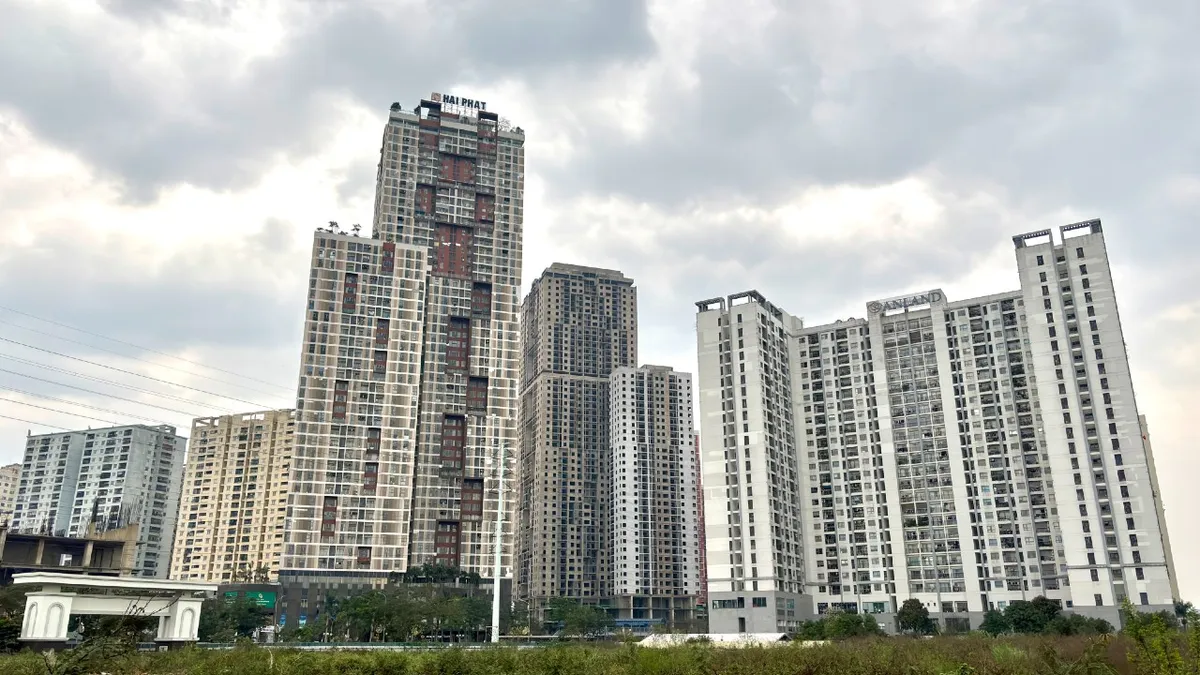
Currently, in Hanoi capital, apartment price of 100 million/m² is considered normal.
The dream of home ownership is fading away
Currently, in the capital Hanoi, the apartment price of 100 million VND/m² is considered normal. In some places, it is up to 300 million VND/m². This price seems sky-high but is real. Compared to 10 years ago, it is 5 to 10 times higher. At that time, the average apartment price in Hanoi was about 20 million VND/m². By this year, the price level has increased to nearly 80 million VND/m², not to mention high-end projects. Speculators often take advantage of the Land Law with its method of pricing land according to the market, thereby inflating land prices, increasing housing prices, causing virtual fever, making the dream of settling down for many families increasingly distant.
According to experts, land prices often account for up to 40% of the cost of a real estate product. When other factors such as land use fees (paid according to the old Land Law), construction materials, labor, etc. do not increase much. But to justify, speculators often cite the Land Law with its method of pricing land according to the market, thereby inflating land prices, increasing housing prices, causing virtual fever, etc.
Mr. Nguyen Van Dinh - Chairman of the Vietnam Real Estate Brokers Association commented: "In Hanoi and Ho Chi Minh City, house prices and real estate prices have increased sharply. The basic reason here is supply and demand. The demand is very large, in all forms: housing demand, investment demand, housing for many fields, especially housing for workers, civil servants, and production workers, there is a great shortage. It is this shortage that leads to chaos in the market."
This year, of the more than 40,000 new apartments opened for sale in the two largest markets, Hanoi and Ho Chi Minh City, over 95% of the apartments are in the high-end segment, with prices ranging from 76-80 million VND/m2. There are no longer mid-range apartments priced at 35-40 million VND/m2 like a few years ago. High land prices will increase the cost of buying, renting or using land, leading to higher total investment costs for each project, reducing potential profits... This is a factor that strongly affects foreign investors when participating in the Vietnamese real estate market.
Mr. Michael Piro - General Director of Indochina Capital commented: "When the market shows signs of strong speculation, land prices far exceed real economic value, we often slow down a bit, stand back and observe instead of chasing the "fever"".
Mr. Koen Soenens - Director of Deep C Industrial Park Hai Phong commented: "In reality, in the same project, phase 1 has a different price, while phase 2 of the project has a higher land price according to market price."
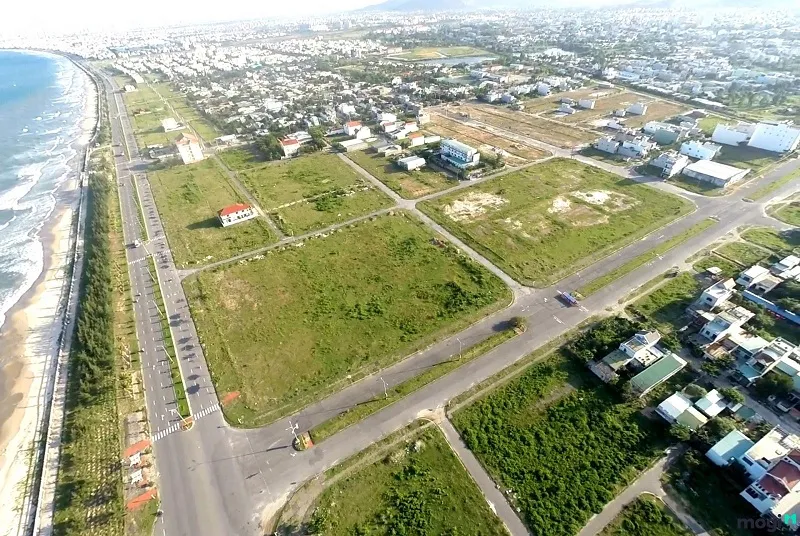
4.1 million billion VND is the capital that credit institutions have lent to the real estate sector.
High land prices cause resource allocation problems
4.1 trillion VND is the capital flow that credit institutions have lent to the real estate sector. This figure is 4 times higher than the country's public investment capital this year and has achieved a credit growth rate of nearly 17% compared to the end of last year. However, how effective is this capital flow for the economy and will high credit growth in real estate cause a repeat of the risks of real estate bubbles and bad debts for the banking system as happened many years ago?
Every day, Mr. and Mrs. Lieu come to take care of their family's vegetable gardens. The irony is that the land where vegetables are grown is actually the grounds of villas worth tens of billions of dong that are left empty. A large amount of social resources are being buried in abandoned projects with no one living there.
According to estimates, the real estate sector currently contributes directly to only about 3.5% of GDP, but absorbs nearly 1/4 of the total capital of the entire economy. This shows that the capital productivity of the real estate sector is very low.
Hundreds of villas but now only a few households live there. Hundreds of billions of dong are lying idle with these real estates. The closer to the center, big cities, places with expensive land values, the more uninhabited houses there are. The dream of getting rich from real estate speculation has now become a burden for many investors, banks and distorts the source of growth capital for the country.
Reality shows that capital invested in real estate is circulating in a cycle: Banks lend to real estate project investors to build houses - Banks also lend to real estate investors to buy houses - Real estate project investors use the money collected from real estate investors to invest in new projects, build more houses. According to economic experts, from a certain perspective, this is going against the normal economic law that credit must be poured into production sectors in the economy.
Mr. Mac Quoc Anh - Vice Chairman of the Hanoi Association of Small and Medium Enterprises commented: "Too much credit in real estate will directly affect the manufacturing, trade and service sectors. Because these are the sectors that create many jobs."
According to estimates, in the past 10 years, land has increased 3.12 times. This is also the reason why real estate attracts a lot of capital from individual investors, domestic enterprises, FDI enterprises and credit institutions...
Mr. Tran Duc Anh - Director of Macro and Market Strategy, KB Securities Vietnam Company said: "Lending interest rates are often higher than normal interest rates for production and business activities. More importantly, lending to real estate has collateral".
Dr. Pham Thi Hoang Anh - Deputy Director of the Banking Academy commented: "Mortgage assets mainly come from the real estate market. Therefore, if the real estate market goes through the bubble phase and enters a recession phase, it will cause potential risks that can be considered a risk to the banking and financial system, especially related to the problem of bad debt."
During this session of the National Assembly, the Government has developed and submitted a series of proposals on mechanisms and policies to remove difficulties and obstacles in the organization and implementation of land laws... This is considered a positive signal to remove and help make the market healthy for both people and businesses. Only when land prices are strictly managed by the State, publicly and transparently, will speculation, manipulation and price inflation be eliminated, and the interests of people and businesses be harmoniously ensured.
Source: https://vtv.vn/gia-dat-bi-thoi-phong-giac-mo-an-cu-xa-dan-100251104210743634.htm


![[Photo] Panorama of the Patriotic Emulation Congress of Nhan Dan Newspaper for the period 2025-2030](https://vphoto.vietnam.vn/thumb/1200x675/vietnam/resource/IMAGE/2025/11/04/1762252775462_ndo_br_dhthiduayeuncbaond-6125-jpg.webp)

![[Photo] Opening of the 14th Conference of the 13th Party Central Committee](https://vphoto.vietnam.vn/thumb/1200x675/vietnam/resource/IMAGE/2025/11/05/1762310995216_a5-bnd-5742-5255-jpg.webp)



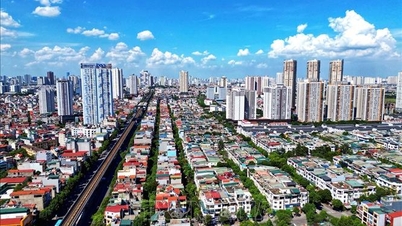

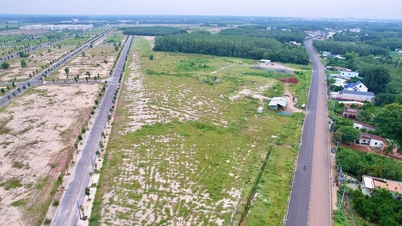





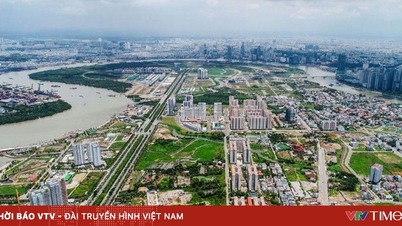
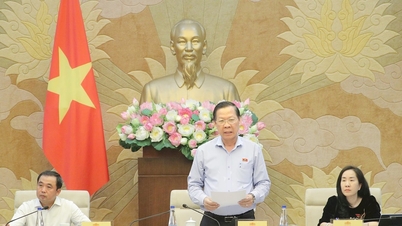
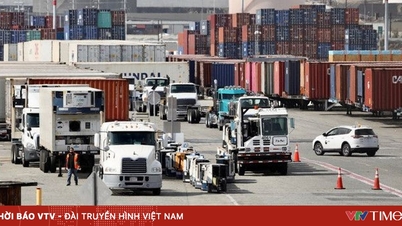


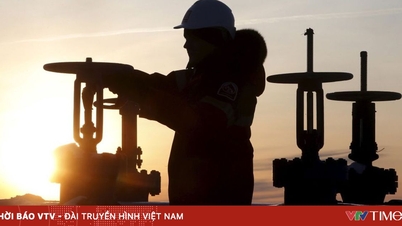


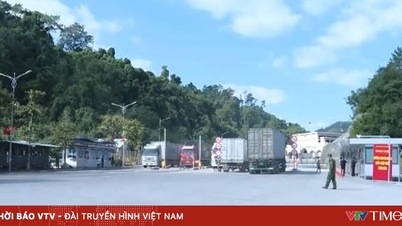







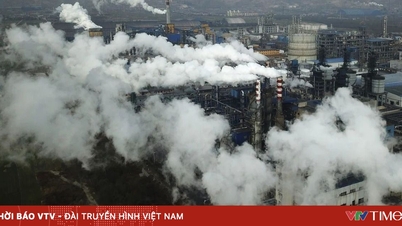





















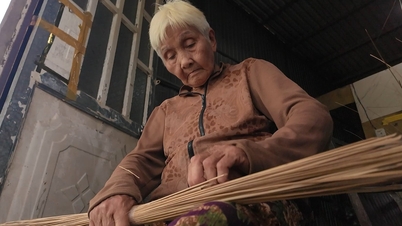














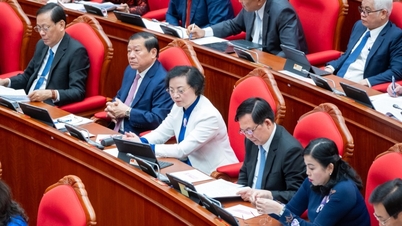









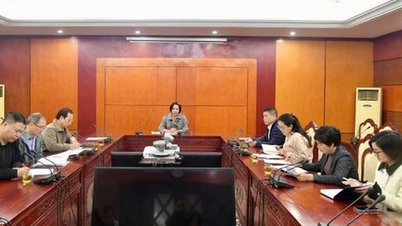


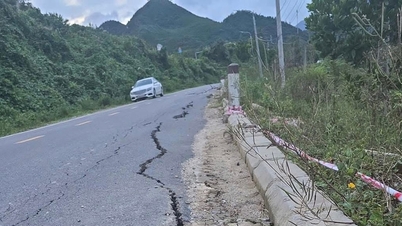

























Comment (0)